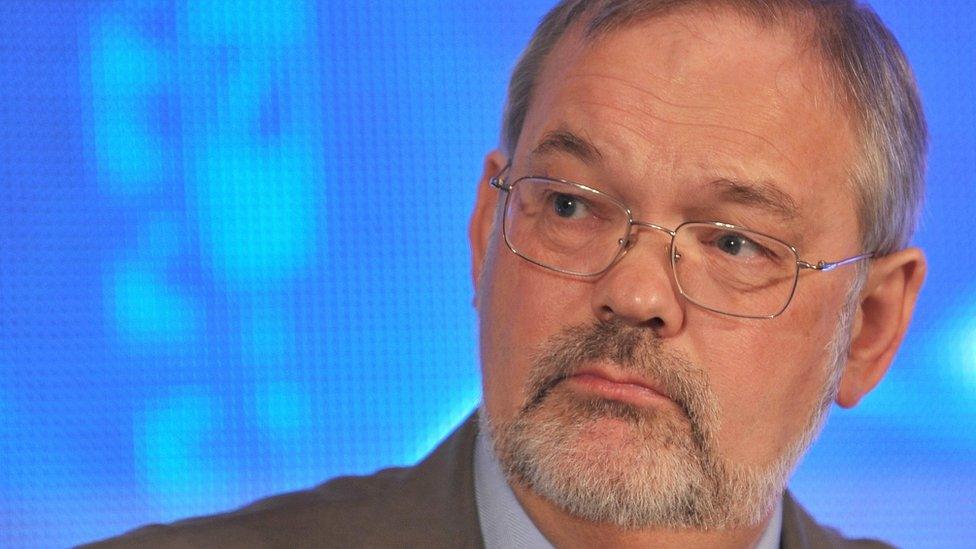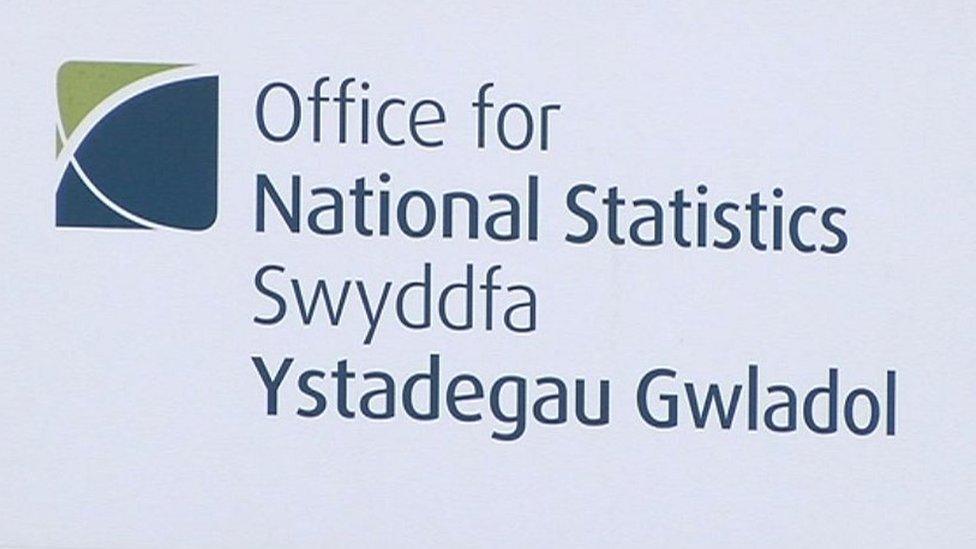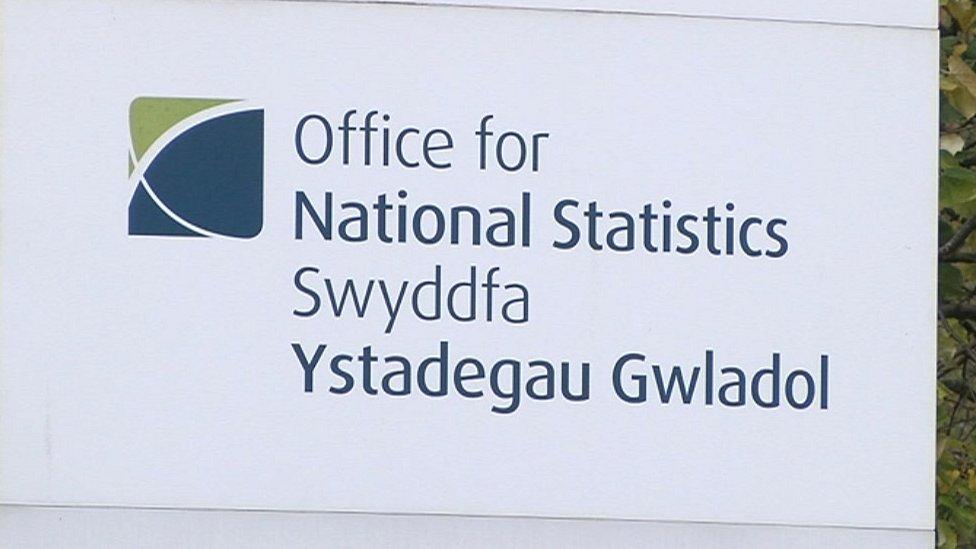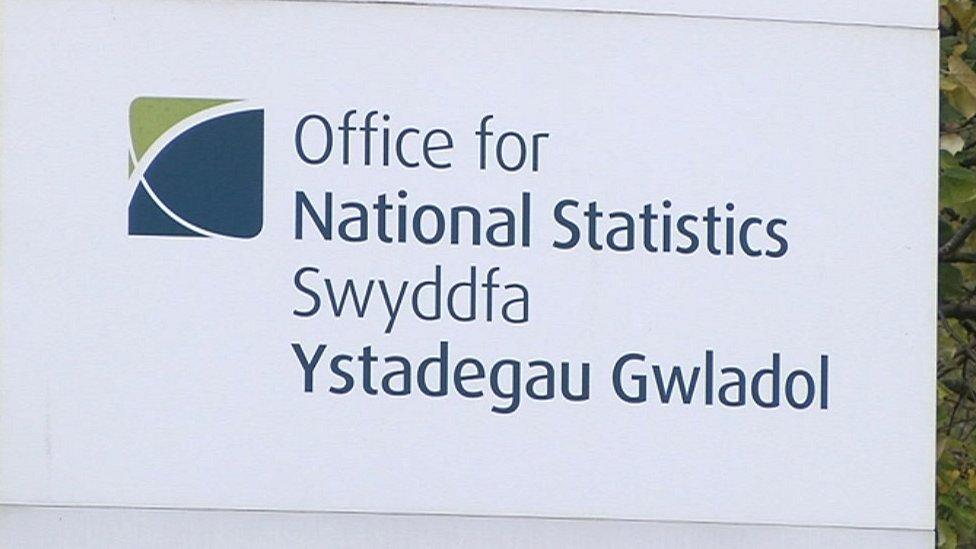Britain's big data: painting by numbers
- Published

Sir Charlie Bean was asked by George Osborne to review the Office for National Statistics
Viewing the world from a statistician's perspective, we are all broken down by age and sex. And also by NUTS.
That's the Nomenclature of Units for Territorial Statistics. Or what you might call a regional breakdown.
Just as you might ask "who polices the police?", there's the question of "who counts the bean-counters?"
Mr Bean, of course. Or Sir Charles Bean, formerly of the Bank of England, who was asked by George Osborne to review the Office for National Statistics (ONS).
He had lots to say about the quality of what we get out of the ONS, with its 2,500 staff and £145m budget. And part of that was another type of regional breakdown - the kind you get when you push public services out to "the regions".
In the case of the ONS, it was Newport in South Wales. From more than 1,000 staff in London 10 years ago, there are now about 50. The Welsh centre went from 1,300 to nearly 1,900.
Uprooting families
But in trying to persuade London staff to move to Newport from 2005 onwards, only 101 went, and of them, only seven were senior civil servants.
The calculation may have been that they didn't want to uproot their families. Partners might have had London jobs they could not leave. Or they might have reckoned Newport is no place to build your career, when you want to leave the ONS.
As it now turns out, a reversal of the move is made all the more difficult by the fact that a statistician selling a home in south Wales is going to struggle to buy much in London.
Sir Charles reports the move along the M4 took a lot of skills out of the ONS, and damaged it. But the damage done, he would like to see Newport develop further as a centre for statistical expertise.
However, he also observed that being out of the metropolis has deprived ONS of an intimate knowledge of what its users want. Its main user is the UK government, which relies on those ONS numbers to make policy and allocate resources.
Big Smoke
This reflects on that repeating theme of London's dominant role in the British economy and in the distribution of power.
The huge magnetic pull of the metropolis strips talent out of the other parts of the UK, and particularly the English regions.
Yet the economic dynamo of this world city spins out activity and jobs to those same nations and regions.
Where government seeks to intervene in that process, it struggles to succeed. And as the ONS found, it pays a high price in pounds and and in lost skills.
We were told that superfast telecoms and digital commerce would make distance irrelevant. A job done on a computer screen in London could be done in Newport, Thurso, Bangalore or Manila.

But that's not how it has turned out. Professionals like to cluster together. If you're recruited by one employer, it's important to know that another employer is nearby, in case things don't work out.
That can work, when you build up the clusters. That's what brings academics to Scotland's universities: likewise specialists in offshore oil and renewable energy.
There are fewer such clusters around the regions of England, except in universities and football clubs.
And for all that you can take part in video-conferences and eyeball your boss or client on a screen, it is not a substitute for mixing before and after that meeting, and for just happening to bump into a potential customer.
Where the "user" with the buying power for your information is located within five miles of Trafalgar Square, it is that human contact that keeps drawing people back. That is where contracts are decided, so it's often where you have to be.
'Lift and shift'
This strikes a chord in the BBC. Moving thousands of staff from London to Salford was a difficult and very expensive process. But the commissioning power for most network broadcast remains in central London, and a lot of managers have an interest in keeping it that way.
As Sir Charles Bean was publishing his interim report this week, Scotland's culture minister, Fiona Hyslop, was setting out her thoughts on bringing more BBC programme-making to Scotland.
There is an argument that if more than £300m of licence money is raised in Scotland, it ought to be spent in Scotland.
That sometimes gets confused with the argument that it should all be for Scottish audiences, as if the pooling of resource in network programmes - which can have a Cockney or Scouse accent, or pukkah BBC - is not also intended for Scottish audiences.

Six years ago, BBC management recognised that not enough was being spent in Scotland so about £80m was allocated to programmes produced out of Scotland for network output, in addition to about £35m spent on television output for Scotland only.
The SNP minister's complaint is that a lot of this new money went into "lift and shift" - lifting up a programme such as Question Time, Eggheads or Waterloo Road, and shifting it to an office in Glasgow.
These programmes are not intended to reflect the place they're made. And the office tends to be peopled by small numbers who travel north to stay in a Glasgow hotel for part of the week.
Ms Hyslop questions whether the economic impact has accompanied the budgets, reckoning that there should be £3 of economic spin-off for every £10 of programme-making.
The argument goes further: why not have the stories told on network television and radio - from soaps to costume drama to news and documentaries - originate from around the UK?
The next few months will see decisions made about that. The future shape of the BBC is shaping up to be one of the big decisions for 2016.
Numbers factory
It may challenge the culture of the corporation, just as Sir Charles Bean wants to challenge the culture of the ONS.
He wants it to get out more - to listen to users, and not just those in London. He reckons it is still too rooted in the mindset of 1941, when its predecessor was set up to provide the numbers for wartime planning.
It behaves like a "factory", says Sir Charles, churning out numbers, with insufficient sense of their context and a reluctance to analyse or comment on them. The mindset is around an economy that used to produce lots of manufactures, but which now produces far more in services.
Services are much harder to count, and harder to see where they are sold. That becomes ever more difficult through e-commerce, where a sale may be counted in one country for a purchase elsewhere, and where the purchase is of a digital entity which instantly transfers down a telecom line.
This makes for something Sir Charles' report splendidly calls "technologically-induced disintermediation". To you and me, that's something like online shopping.
And that in turn makes it ever more difficult to do something the ONS has not done much - reflecting regional variation.
Quality data
The Bean Report (at least its interim version) wants to change that. With power being devolved not only to Scotland, Wales and Northern Ireland but to the city metropolises, there is a lot of information missing.
Some of the economic data had been collected by England's regional development authorities, but they were disbanded in 2010, and their replacements have not seen data collection as a task for them.
Getting at reliable figures for those NUTS - the regions and local areas - requires either a lot more resource or, as Sir Charles suggests, much more use of other existing data sources, including tax returns.
Scotland starts from a stronger position than the English regions, with the Scottish government having some years of experience of assessing economic output, manufactured exports, housing and health statistics.
But those users who crunch statistics bemoan the quality of the economic material, its range and the speed of its delivery.
With more powers coming to Holyrood, that makes a much bigger difference. Scotland will need quality statistics. It will also need impartial, skilled people to interpret it.
But Holyrood is far from having anything like the Office for Budget Responsibility.
And Fiscal Affairs Scotland, the two-person outfit that offered analysis of Scotland's public finances - the nearest Scotland had to the Institute for Fiscal Studies - has suspended operations for now. Lack of funding, of course.
- Published2 December 2015

- Published2 December 2015

- Published28 November 2015
